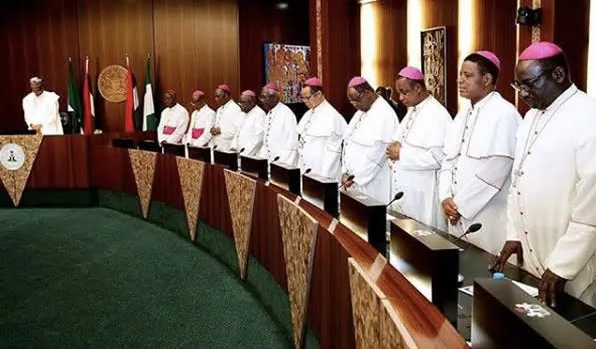
The Federal government of Nigeria needs to “immediately” address the challenge the people of God are facing in the West African nation amid the ongoing process of redesigning the country’s currency, the Naira, by increasing the circulation of the new notes, Catholic Bishops have said.
In a Thursday, February 16 statement issued at the end of their first Plenary Assembly for 2023, members of the Catholic Bishops’ Conference of Nigeria (CBCN) say, “We urge Federal Government and its relevant agencies to immediately increase the circulation of new Naira notes and make and implement adequate monetary and other relevant policies that will reduce the suffering and hardship experienced by our people.”
In their message delivered at the Catholic Secretariat of Nigeria (CSN) Resource Center in Abuja Archdiocese, CBCN members say they find it regrettable that some people are accumulating the new notes, “hoarding” them, thus limiting their circulation.
“We admonish those who collaborate in hoarding the new currency and petroleum products to desist from such a dastardly act,” they say in their communiqué that was read out by CBCN President, Archbishop Lucius Iwejuru Ugorji.
The Catholic Bishops laud Nigerians for their bravery in the face of the hard situation and thank President Muhammadu Buhari for “approving the extended use of the old N200 notes”.
In October last year, the Central Bank of Nigeria (CBN) announced plans to redesign its highest-value banknotes in a bid to address the challenge of excess cash and inflation.
CBN allowed citizens to swap old naira notes with the redesigned bills from January 2023 to boost the adoption and circulation of the new currency before the old bills cease to be legal tender at the end of the first month of the new year.
In their communiqué following their February 11-17 Plenary Assembly, the Catholic Bishops also decry Nigeria's challenging economic situation, which they say is partly caused by the currency swap and the Nigerian currency’s declining value.
“Our crumbling national economy has continued to make life difficult and hard for our people. As the value of the Naira continues to decline, the high cost of goods and services, including food items, continues to soar,” they say in their statement signed by Archbishop Ugorji and CBCN Secretary, Bishop Donatus A. Ogun.
They add, “The flawed implementation of the cash swap policy, which resulted in a cash crunch, has added to the ordeal, hunger, anger, and frustration of the people.”
The Catholic Church leaders also say that the persistent fuel scarcity has contributed to the suffering of Nigerians as they “spend many hours in long queues under harsh conditions trying to buy fuel at exorbitant prices.”They further lament the high unemployment levels, which they say have led to economic hardships among the youth in Africa’s most populous nation, a situation that has subjected young people to abject poverty.
Amid poverty, Nigeria’s Catholic Bishops say that many young people “either flee the nation in search of better living conditions or resort to crime and begging to survive.”
The situation of poverty, CBCN members say, “is further compounded by the growing debt burden that is mortgaging our future and that of upcoming generations.”
They urge the government of the West African nation to “provide an enabling environment for the creation of more jobs by both the government and the private sector.”
The Catholic Bishops also call on the government to "stand up to their primary responsibility of safeguarding the lives and property of Nigerians."
They also enjoin all Nigerians "to strengthen security measures in their homes and institutions."
“We call on all citizens to be law-abiding, and vigilant, and to shun all forms of violence and criminality," CBCN members say in their February 16 communiqué.
